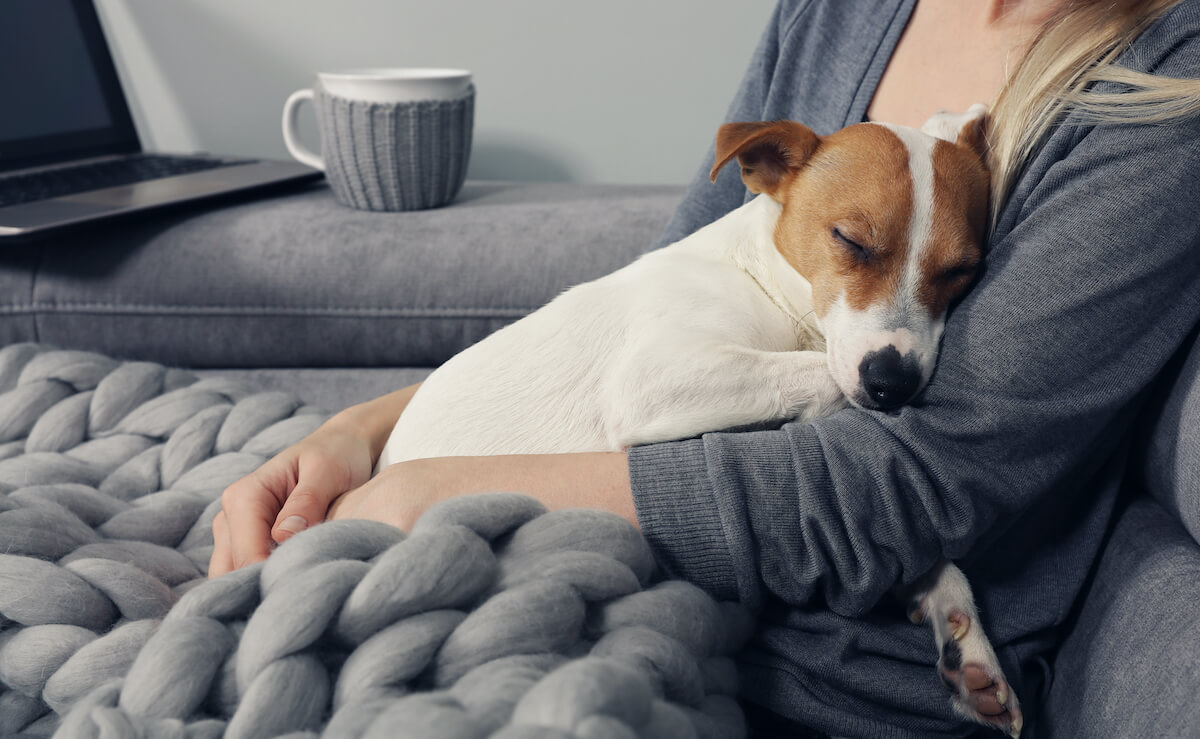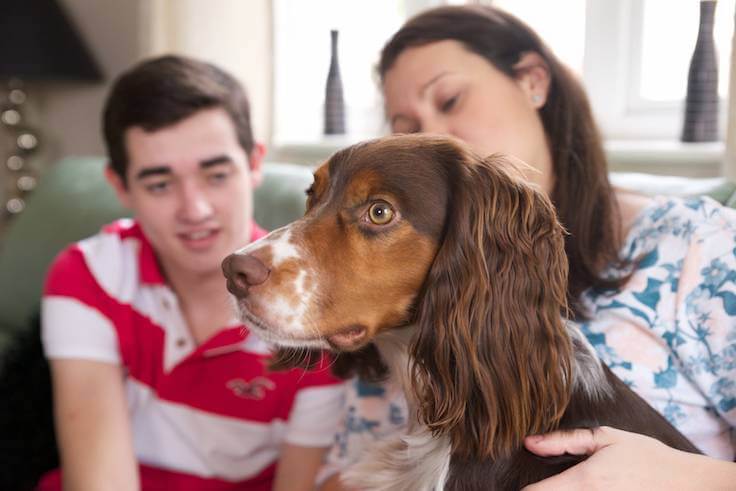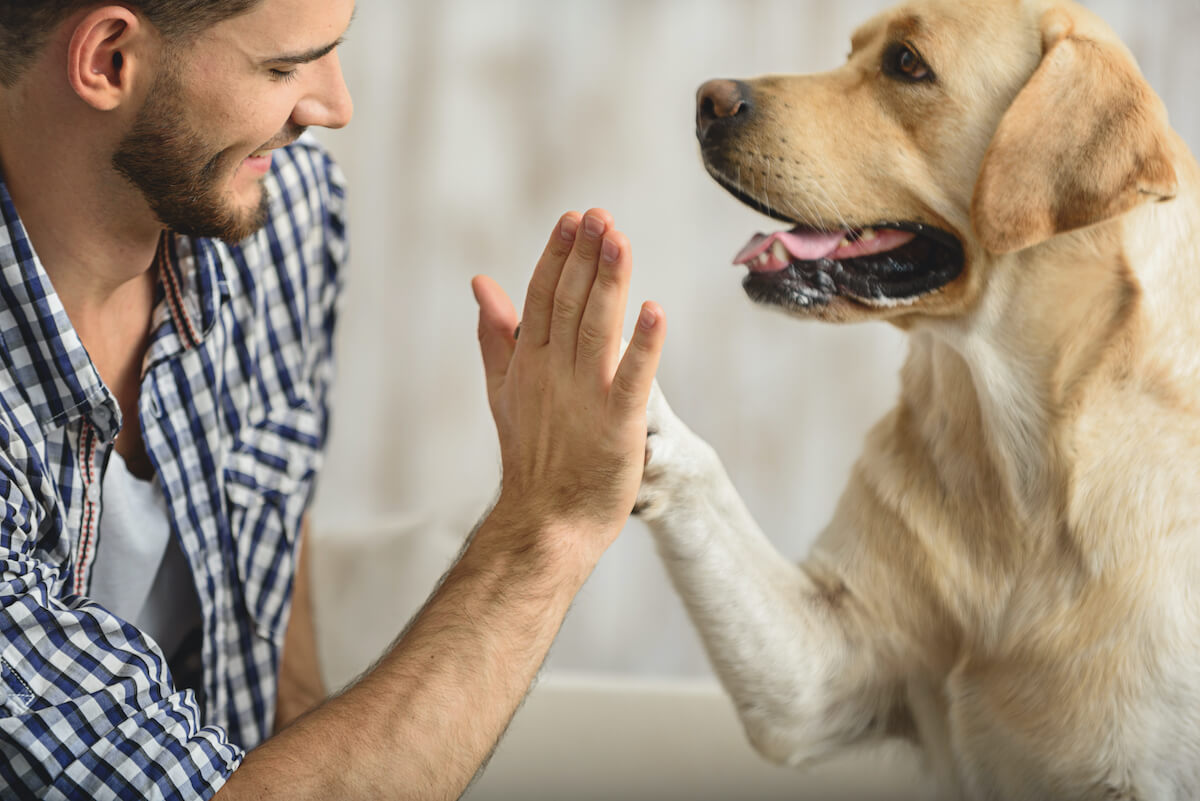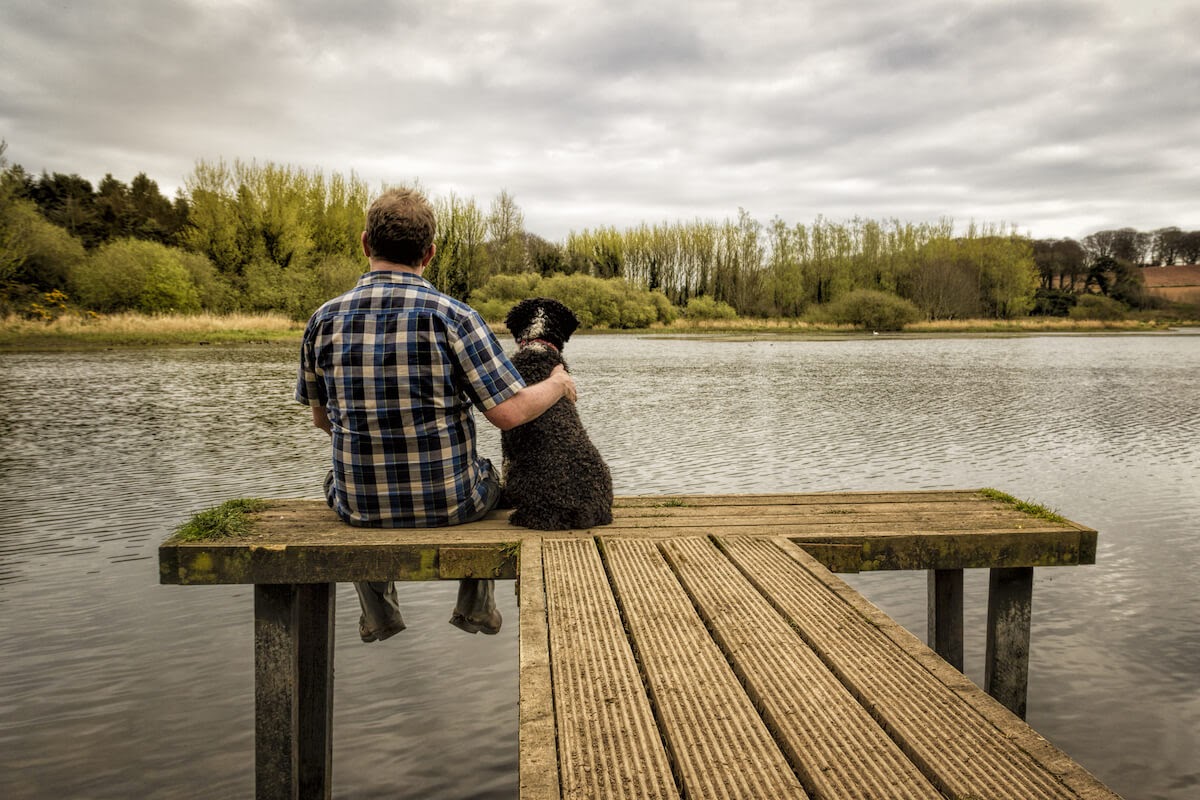The bond between a human and a dog is ancient. For thousands of years we have bred dogs for hunting, herding, protection and companionship which, in turn, has led to loyalty, friendship and emotional support, benefitting both man and dog.
There’s a reason our doggy companions are considered our best friends!
Did you know; if you want to become the very best of friends with your dog and build a lifelong bond, it's best to start when you first bring them home.
First impressions count! So for the best start, make sure you have all the right resources in place for your new friend’s arrival (a comfy bed, food and drinks bowls, some fun toys and, of course, their favourite food!). If you’re bringing home a puppy, having an old t-shirt or piece of clothing that smells of their mother can also help them to settle in and ease them gently into a new and flourishing relationship with you.
10 Tips to Build a Better Bond With Your Best Friend!
Your new puppy/dog will become your very best friend if you:
- Introduce your boundaries from the start. Let your dog know the rules! For example don’t let them sleep in your bed if you are only going to change your mind when they are big and take up too much space!
- Keep to a routine as much as possible. Playing, feeding and walkies should be done, whenever possible at the same time each day. Although dogs can’t read a clock, they will definitely know when a routine changes - and this could unsettle them.
- Be consistent in your messages. Make sure everyone else in the house delivers the same rules.
- Show them lots of love! This is the easy one - give a lot of love and you will get a lot more in return!
Other golden doggy rules include:
- Training from an early age: Start with the basics (for example, sit, come, stay etc.) and maybe even develop this further by teaching them tricks. Some breeds of dogs (like Border Collies and Spaniels) are very energetic, intelligent and love to please you. Before you know it, they could be jumping through hoops and running through tunnels!

- Spend time with your dog: Sitting on the sofa together, going for a walk, playing games, grooming them or even giving your pet a doggy massage (if they are happy for you to pet them) will all help you develop a stronger bond.
- Help them to socialise: It’s important that your dog is comfortable in lots of different situations, especially if they are a puppy and still learning. Taking your dog to socialisation classes will help them get used to other dogs and sounds and knowing that you are always there to help them through this development phase will further strengthen your bond.
.jpg?width=1200&name=Adaptil_Katie%20%26%20Finlay%201028-2%20(1).jpg)
- Play games: What dog doesn’t like to play a game? Whether it’s fetch, catch, hide & seek or tug o’ war, having fun with your pooch is great - and it’s also great exercise for them.
- Try something new: Although dogs do like routine, it doesn’t mean you can’t try a different place to walk (which will have different smells for your dog to investigate) or perhaps take them to an agility class to learn new tricks together.
- Learn their language: Dogs don’t talk, but they can definitely let you know if they want something, if they think it’s their dinner time or even remind you that they haven’t been for a walk yet. When you get to know your pooch well, you will also know how they are feeling; are they hungry, happy, want to play, or do they look a little ill? A strong bond will enable you to learn their language and take appropriate action.

- Dogs have enough love to go around! Although you may be your pooch’s main buddy, your dog should also bond with other members of the family too. Let others get involved with feeding, walking and grooming and they can also enjoy all the love your dog has to give!

- Praise and reward! Always praise your pooch when they do as you ask, and don’t be afraid to give them a little treat to reward them - they will soon learn that when they obey they will get something nice!
- Never scold! You will never develop a strong bond with your dog if you shout or scold them. This will make them frightened and they will feel confused and stressed. Instead, work with your pet to help them learn appropriate behaviour. Try using a command that you have used in training like ‘down’, ‘sit’, or ‘stay’, which will encourage your pet to do something else instead of an unwanted behaviour - and help them adjust in a positive way!
- Support Your Dog With ADAPTIL. If you would like to help your pet feel calm, reassured, confident and help them learn and be the best pooch they can be, try an ADAPTIL Calm Home Diffuser, plugged into the room where your dog spends the most time.



.jpg?width=1200&name=Adaptil_Katie%20%26%20Finlay%201028-2%20(1).jpg)


